-
KOSPI 2577.27 -2.21 -0.09%
-
KOSDAQ 722.52 -7.07 -0.97%
-
KOSPI200 341.49 +0.02 +0.01%
-
USD/KRW 1396 -2.00 0.14%
Google unveils Android XR platform to launch on Samsung headset
Tech, Media & Telecom
Google unveils Android XR platform to launch on Samsung headset
Samsung is expected to launch the headset running on Android XR next month when it unveils its Galaxy S25 smartphone series
By
Dec 13, 2024 (Gmt+09:00)
2
Min read
News+
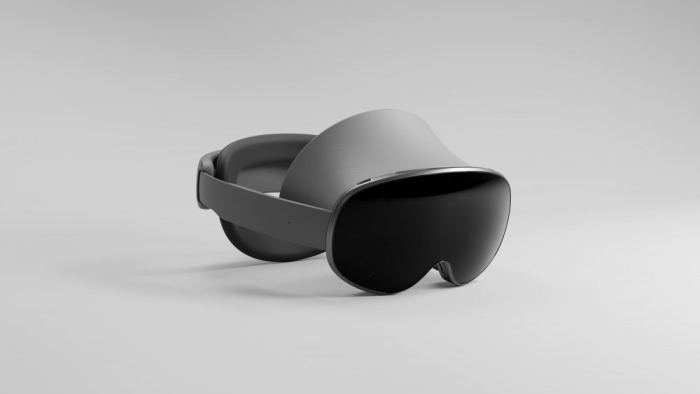
SILICON VALLEY/SEOUL -- Global tech giant Google LLC on Thursday introduced a new operating system for extended reality (XR) devices to be installed in a headset that Samsung Electronics Co., the world’s top memory chip and smartphone maker, plans to launch next year to take on larger headset rivals such as Meta Platforms Inc. and Apple Inc.
Google unveiled Android XR, the software platform by which artificial intelligence (AI), augmented reality (AR), and virtual reality (VR) experiences converge and help power future wearable devices.
Android XR, jointly developed with Samsung, is designed to be an open, unified platform for XR headsets and glasses, Google said.
The first device to run on the platform is a headset code-named Project Moohan, built by Samsung, that will be available for purchase in 2025. The headset will be outfitted with chips by Qualcomm Technologies Inc.
“We’re thrilled to partner with Samsung to build a new ecosystem with Android XR, transforming computing for everyone on next-generation devices like headsets, glasses and beyond,” said Sameer Samat, Google's president of Android Ecosystem.
TO RELEASE NEXT MONTH WITH GALAXY S25
Samsung is expected to unveil the headset next month when it launches its flagship Galaxy S25 smartphone series in San Jose, California, industry sources in Seoul said.
The South Korean tech behemoth teamed up with Google and Qualcomm to venture into the XR device market in February 2023 as the industry was forecast to grow to $1.7 trillion by 2032 from $131.5 billion last year.
LG Electronics Inc., Samsung’s competitor in the home appliance sector, is developing an XR device set for launch in 2025.
The global XR industry is dominated by Meta, which held a 74% market share as of the second quarter, according to analysis firm Counterpoint Research.
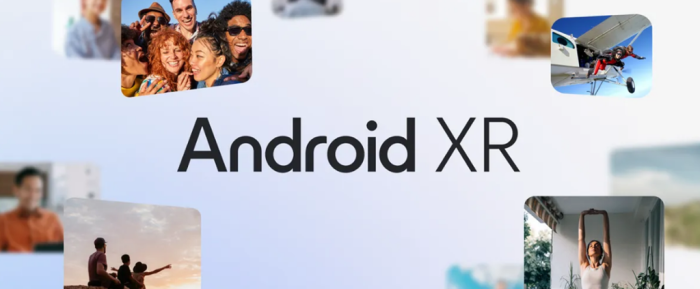
OPEN, UNIFIED PLATFORM
Android XR is designed to be an open, unified platform for XR headsets and glasses, providing users with a greater choice of devices and access to apps they already enjoy, Google said. For developers, it’s a unified platform with opportunities to build experiences for a wide range of devices using familiar Android tools and frameworks, it added.
Headsets with Android XR will allow users to watch YouTube and Google TV on a big virtual screen and enjoy Google Photos in 3D, according to Google.
The devices will also enable users to explore the world in new ways with Google Maps, soaring above cities and landmarks in an immersive view. Users can also find information on whatever is in front of them with a simple gesture.
Android XR will also support glasses, which work with other Android devices, in the future, Google said.
Glasses with Android XR will put the power of Gemini, Google’s AI assistant, one tap away, providing helpful information for users like directions, translations or message summaries without having to reach for a phone.
Write to Eui-Myug Park and Young Chan Song at uimyung@hankyung.com
Jongwoo Cheon edited this article.
More To Read
-
 Tech, Media & TelecomLG ends XR partnership with Meta; Amazon emerges as new partner
Tech, Media & TelecomLG ends XR partnership with Meta; Amazon emerges as new partnerMay 20, 2024 (Gmt+09:00)
-
 Artificial intelligenceMeta’s AI, XR push to gain speed with Korea’s support
Artificial intelligenceMeta’s AI, XR push to gain speed with Korea’s supportFeb 29, 2024 (Gmt+09:00)
-
 Tech, Media & TelecomSamsung spurs XR device business as new cash cow
Tech, Media & TelecomSamsung spurs XR device business as new cash cowFeb 14, 2024 (Gmt+09:00)
-
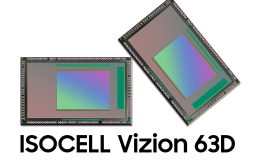 Tech, Media & TelecomSamsung Elec unveils new image sensors for robotics, XR
Tech, Media & TelecomSamsung Elec unveils new image sensors for robotics, XRDec 19, 2023 (Gmt+09:00)
-
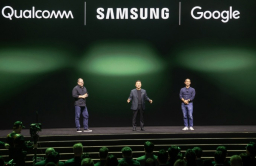 Korean chipmakersSamsung takes steps toward XR device processor chips
Korean chipmakersSamsung takes steps toward XR device processor chipsMay 28, 2023 (Gmt+09:00)
-
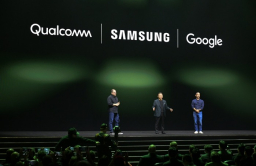 Tech, Media & TelecomSamsung’s next frontier: XR in partnership with Qualcomm, Google
Tech, Media & TelecomSamsung’s next frontier: XR in partnership with Qualcomm, GoogleFeb 02, 2023 (Gmt+09:00)


